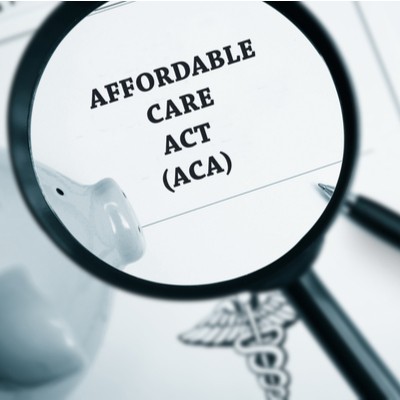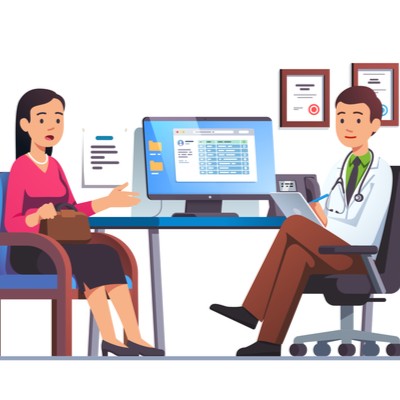Medicaid

Premium cost changes attributable to the Affordable Care Act
The Affordable Care Act (ACA) expands health insurance coverage to millions of uninsured Americans and introduces several reforms to the health insurance market, particularly for people who purchase coverage on their own or receive it through employment at a small business. These reforms standardize benefits, limit insurance rating practices, prohibit coverage denials, limit out-of-pocket costs, and levy new taxes on …
Read more >
Medicaid and Medicare Disproportionate Share Hospital programs
Congress created the Disproportionate Share Hospital (DSH) program in the early 1980s to help hospitals offset the costs of providing care to low-income individuals. Medicaid and Medicare each have a distinct DSH program, with a unique structure and financing mechanism. In addition to giving a brief overview of the Medicaid and Medicare Disproportionate Share Hospital programs, this document will: Discuss …
Read more >
Affordable Care Act funding: An analysis of grant programs under health care reform
This brief examines grant programs funded by the Affordable Care Act (ACA), how funds have been distributed to states and local organizations, and the effects of budget sequestration on future ACA funding. The ACA aims to expand health insurance coverage and introduce health care delivery reforms that improve quality and lower costs. The ACA is designed to reduce the number …
Read more >
Access to mental health care in Michigan
One in five Michigan residents report having been diagnosed with depression at some point in their lives. Mental health disorders cause more disability among Americans than any other illness group. Using data from the Cover Michigan Survey and the Michigan Primary Care Physician Survey, both fielded in calendar year 2012, this brief explores issues related to the prevalence of mental …
Read more >
An introduction to health care payment reform: Research foundations, implementation, operational strengths and challenges
Policymakers across the country are currently engaged in discussions on how to improve the way that health care providers are paid for the services they deliver. These discussions involve how to shift payment systems away from traditional fee for services and toward rewarding providers that achieve excellent outcomes and deliver value to their patients. While both private and public payers …
Read more >
Federally qualified health centers: Are they effective?
In 1964, the Office of Economic Opportunity established federally qualified health centers (FQHCs), which were initially called neighborhood health centers, as part of President Lyndon B. Johnson’s “War on Poverty.” The legislative goals for neighborhood health centers were to: Provide comprehensive, high-quality health services. Be accessible to low-income residents. Be responsive to patient needs. Offer employment, education and social assistance. …
Read more >
Federally qualified health centers: An overview
Health center is an all-encompassing term for federally qualified health centers (FQHCs) and FQHC look-alikes; they are a key component of the health care safety net that provided care to more than 20 million Americans in 2011. The Patient Protection and Affordable Care Act of 2010 (ACA) has positioned health centers to play a crucial role in the future health …
Read more >
Access to health care in Michigan
Understanding the impact of health care coverage (or the lack of it) on health care access is crucial to improving health care in Michigan. The Center for Healthcare Research & Transformation (CHRT), in partnership with the Institute for Public Policy and Social Research (IPPSR) at Michigan State University, surveyed Michigan residents three times (in 2009, 2010, and 2012) on key …
Read more >
Primary care capacity and the Affordable Care Act: Is Michigan ready to expand Medicaid coverage?
Since one of the most immediate questions facing the State of Michigan is whether to expand Medicaid coverage, this issue brief focuses specifically on one area of inquiry—Michigan primary care physicians’ capacity to serve new patients in both Medicaid and the private insurance market. In the fall of 2012, the Center for Healthcare Research & Transformation (CHRT), in partnership with …
Read more >
Affordable Care Act: 2013 implementation timeline
The timeline below details provisions and deadlines for the Patient Protection and Affordable Care Act (ACA) scheduled during the 2013 calendar year. Not all dates are set by law and some are subject to change pending the regulatory process. Since its passage in March 2010, many parts of the Affordable Care Act have already taken effect. However, 2013 is a …
Read more >